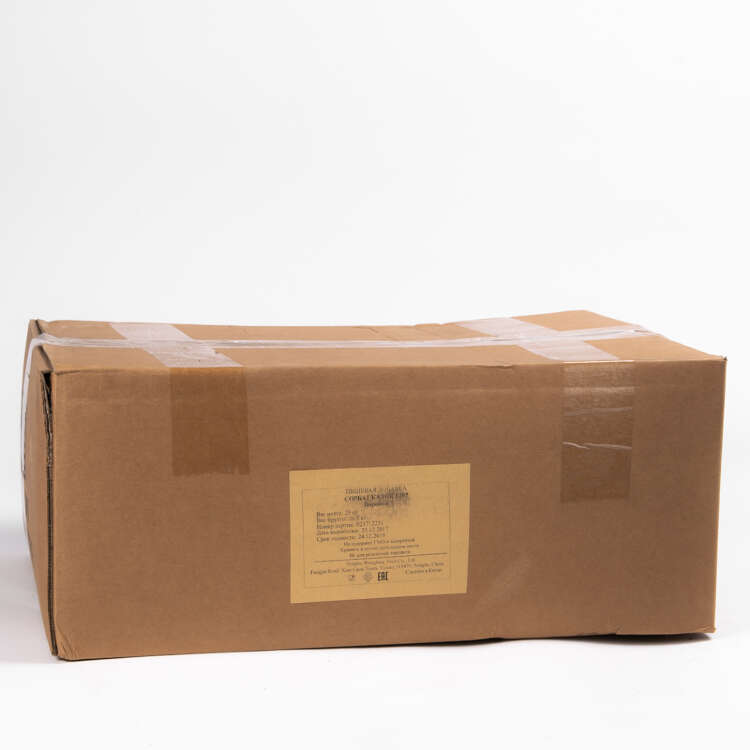Potassium sorbate E 202
Property Descriptions
Potassium sorbate E202, English. Potassium sorbate, has the chemical name 2,4-potassium hexadienoate and the formula C6H7O2K. It is a white powder or granules almost odorless with a bitter taste. It is the most soluble of sorbates, it is well dissolve
Property Descriptions
Potassium sorbate E202, English. Potassium sorbate, has the chemical name 2,4-potassium hexadienoate and the formula C6H7O2K. It is a white powder or granules almost odorless with a bitter taste. It is the most soluble of sorbates, it is well dissolved.
Potassium sorbate is widely used as a preservative in various branches of the food industry. Surface treatment of loaves of semi-smoked sausages with a 10-20% solution of potassium sorbate increases their shelf life without mold by 4 times. A soft drink with the addition of 0.02% potassium sorbate does not spoil for 180 days. To reduce the number of microorganisms and inactivate enzymes in fruit juices, potassium sorbate is added to them in an amount of 0.05-0.2%, depending on the type of juice and the required shelf life. It is also used in the production of fish, fruit, dairy products, cheeses, confectionery in an amount of up to 0.2%, in wines with residual sugar to prevent fermentation in an amount of up to 100 mg per liter, as well as for surface treatment of bread and bakery products, dried fruits, packaging materials for food.
Below are the approximate doses of potassium sorbate in various food products.
- Margarine* – 30
- Margarine – 60 - 120
- Mayonnaise, ketchup, sauces – 100 - 120
- Melange – 60 Canned vegetables – 120 - 240**
- Tomato puree, 12% – 50 - 100
- Jams – 65 - 100
- Fruit and berry puree - 65 - 80
- Fruit yoghurts – 100 - 150
- Fruit juices – 65 - 80
- Juice concentrates – 100 - 200
- Marshmallow, marmalade – 50 - 70
- Soft drinks – 20 - 170
- Butter cream – 260
- Sour cream – 120 - 240
- Cottage cheese – 70 - 100
- Sugar confectionery products – 150 - 200
- Flour confectionery products – 130 - 260
- Dough – 260 - 400
- * — joint use of sorbic acid and potassium sorbate
- ** — per 100 liters of brined.
Potassium sorbate is widely used as a preservative in various branches of the food industry. Surface treatment of loaves of semi-smoked sausages with a 10-20% solution of potassium sorbate increases their shelf life without mold by 4 times. A soft drink with the addition of 0.02% potassium sorbate does not spoil for 180 days. To reduce the number of microorganisms and inactivate enzymes in fruit juices, potassium sorbate is added to them in an amount of 0.05-0.2%, depending on the type of juice and the required shelf life. It is also used in the production of fish, fruit, dairy products, cheeses, confectionery in an amount of up to 0.2%, in wines with residual sugar to prevent fermentation in an amount of up to 100 mg per liter, as well as for surface treatment of bread and bakery products, dried fruits, packaging materials for food.
- Margarine* – 30
- Margarine – 60 - 120
- Mayonnaise, ketchup, sauces – 100 - 120
- Melange – 60 Canned vegetables – 120 - 240**
- Tomato puree, 12% – 50 - 100
- Jam – 65 - 100
- Fruit and berry puree - 65 - 80
- Fruit yoghurts – 100 - 150
- Fruit juices – 65 - 80
- Juice concentrates – 100 - 200
- Marshmallow, marmalade – 50 - 70
- Soft drinks – 20 - 170
- Butter cream – 260
- Sour cream – 120 - 240
- Cottage cheese – 70 - 100
- Sugar confectionery products – 150 - 200
- Flour confectionery products – 130 - 260
- Dough – 260 - 400
- * — joint use of sorbic acid and potassium sorbate
- ** — per 100 liters of brine
Характеристики
| Aldehydes, % | max. 0.1 |
| Alkalinity mg HCl/g | max. 1.0 |
| Acidity mg NaOH/g | max. 1.0 |
| Drying losses % | max. 1.0 |
| Heavy metals (as Pb), ppm | max. 10.0 |
| Arsenic, ppm | max. 3.0 |
| Lead, ppm | max. 2.0 |
| The content of the main substance, % | 99.0 – 101.0 |
| Appearance | White granules |
Не нашли нужный товар? Остались вопросы?
Если у Вас возникли вопросы по наличию и ассортименту товара, или другие вопросы, Вы можете позвонить нам по телефону +7 (4212) 476-887, +7 (924) 208-4800, +7 (924) 305-4785. Или просто оставьте заявку. Мы свяжемся с Вами и дадим ответ.




